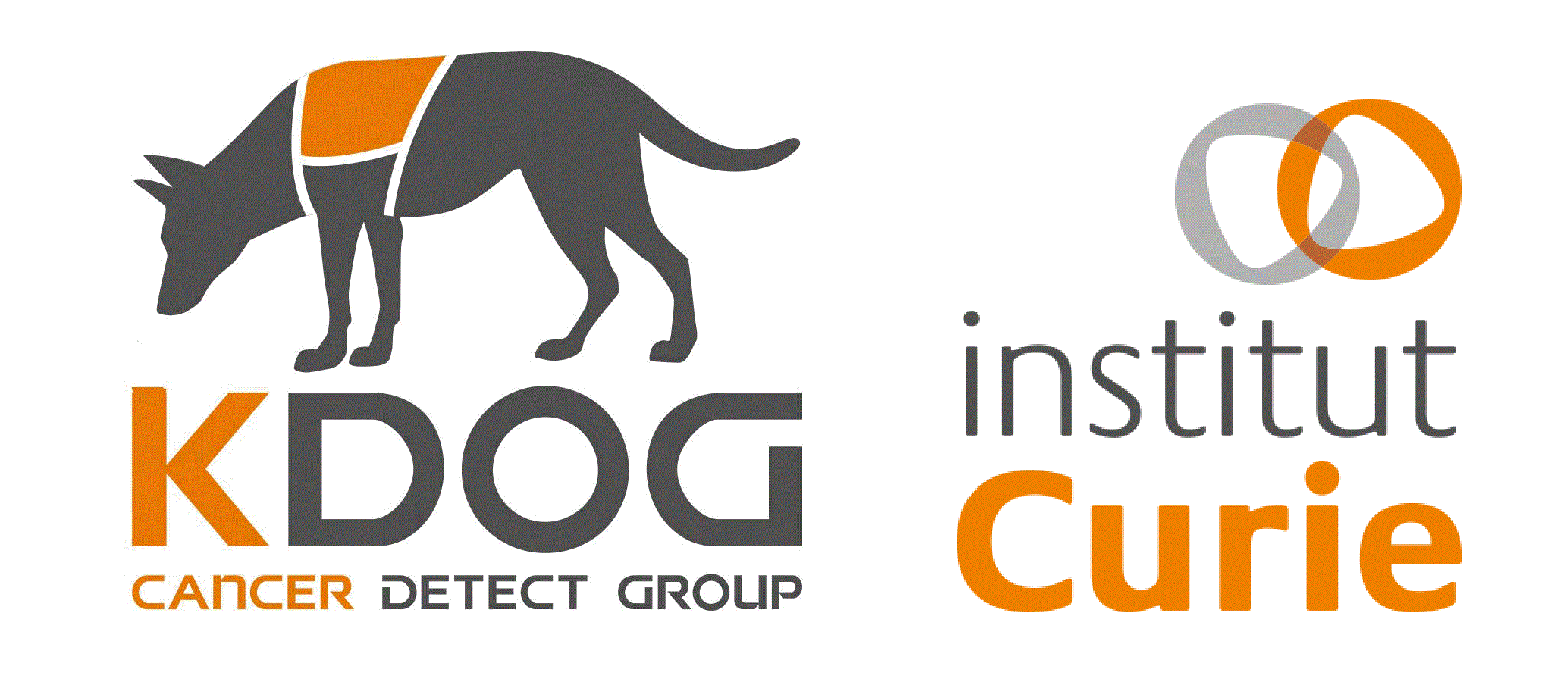The clinical study
The KDOG team validated a proof of concept in 2017-2018 with 2 dogs which in more than 90% of cases found the sample carried by sick women among samples of women without cancer. This is exceptional and seems to prove that the dogs do detect something, but it is not enough. We must now move from a concept to a rigorous, repeatable, scientifically validated by the medical community progress, which requires a clinical study. This clinical study, carried out in a multicentre setting, began in early 2020.
A word from Anne Tardivon, Principal Investigator
An update on the method
The dog team
KDOG dogs are trained at the Jardins de la Défense in Champvoisy. The kennel is run by Didier VALENTIN, former army captain and cynotechnical trainer. He uses his expertise to prepare Nougaro, a labrador, for the detection of breast cancer odors.
Didier is accompanied by two canine educators, Cécile MANSUY and Florian CONCHAUDON, who respectively look after Odin, a labrador, and Owen, a Malinois.
Observing, measuring, recording
On the side of ethologists and veterinarians
Parallel view
An associate professor of medicine and former senator, Claude HURIET has worked on bioethical issues, whether through the law on the protection of persons involved in biomedical research bearing his name or through his participation in various French and international bioethics committees. He was also President of the Curie Institute until 2013 and is one of the project's great ambassadors.
